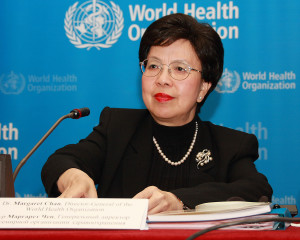This year, the WHO is focusing particularly on Hepatitis B and C, which together cause approximately 80 per cent of all liver cancer deaths and kill close to 1.4 million people every year. WHO is alerting people to the risks of contracting hepatitis from unsafe blood, unsafe injections, and sharing drug-injection equipment as some 11 million people who inject drugs have Hepatitis B or C infection. Children born to mothers with Hepatitis B or C and sex partners of people with hepatitis are also at risk of becoming infected.
The organisation emphasised the need for all health service providers to reduce risks by using only sterile equipment for injections and other medical procedures, testing all donated blood and blood omponents for Hepatitis B and C (as well as HIV and syphilis) and promoting the use of the Hepatitis B vaccine. Safer sex practices, including minimising the number of partners and using barrier protective measures (condoms), also protect against transmission. WHO recommended vaccinating all children against Hepatitis B infection, from which approximately 780,000 people die each year.
“A safe and effective vaccine can protect from Hepatitis B infection for life,” the WHO said. Ideally, the vaccine should be given as soon as possible after birth, preferably within 24 hours. The birth dose should be followed by 2 or 3 doses to complete the vaccine series. WHO also recommended vaccinating adults who are at increased risk of acquiring Hepatitis B. These nclude people who frequently require blood or blood products (for example dialysis patients), healthcare workers, people who inject drugs, household and sexual contacts of people with chronic hepatitis, and people with multiple sexual partners.
Medicines are now available that can cure most people with Hepatitis C and control Hepatitis B infection. People who receive these medicines are less likely to die from liver cancer and cirrhosis and less likely to transmit the virus to others.
Source:Leadership Online

 The World Health Organisation (WHO) has said that about two million people a year contract hepatitis from unsafe injections. It added that there is an urgent need for countries to enhance action to prevent viral hepatitis infection and to ensure that people who have been infected are diagnosed and offered treatment. The WHO director general, Dr Margaret Chan, disclosed this yesterday in a statement to mark World Hepatitis Day 2015 with the theme “Prevent Hepatitis. Act Now”.She said, “These infections can be averted through the use of sterile syringes that are specifically designed to prevent reuse.”
The World Health Organisation (WHO) has said that about two million people a year contract hepatitis from unsafe injections. It added that there is an urgent need for countries to enhance action to prevent viral hepatitis infection and to ensure that people who have been infected are diagnosed and offered treatment. The WHO director general, Dr Margaret Chan, disclosed this yesterday in a statement to mark World Hepatitis Day 2015 with the theme “Prevent Hepatitis. Act Now”.She said, “These infections can be averted through the use of sterile syringes that are specifically designed to prevent reuse.”




